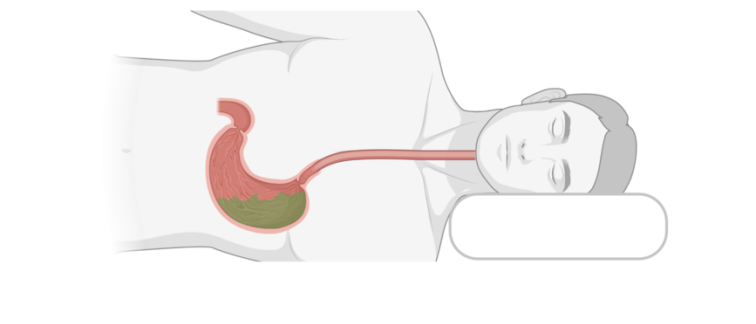As a PhD student, Schuitenmaker studied possible treatment options for patients who suffer from severe acid reflux at night. In Western countries, about 20% of the population experiences such refluxes from time to time. The symptoms are caused by stomach acid travelling up towards the esophagus, which leads to heartburn, an unpleasant sour taste in the mouth and, sometimes, recurring cough or hiccups.
Lifestyle changes
There are several treatment options for patients suffering from nightly acid reflux. Sleeping with the head lifted higher than the chest, for instance, or limiting the consumption of food and drinks close to bedtime. Other options are to lose weight, quit smoking or to decrease alcohol consumption. If all of these do not work sufficiently, doctors sometimes prescribe antacids.
Schuitenmakers: “we know that these lifestyle changes work, even though they have not been as extensively studied as drugs. In literature, I kept reading that sleeping on the left side would reduce acid reflux too. This makes sense, since the stomach lies beneath the esophagus in that sleeping position, which makes it less likely that stomach acid travels back to the esophagus”.
Measuring stomach acid
To validate these theories, Schuitenmaker measured the volume of stomach acid in 58 patients who suffered from severe acid reflux, through a small tube in their esophagus. He also noted their sleeping position. Indeed, when patients slept on their left sides they turned out to have less stomach acid in their esophagus, compared to when they slept on their right sides or on their backs. Schuitenmaker also found that sleeping on the left side allowed stomach acid to flow from the esophagus back to the stomach more quickly.
Pulsing device
Following this, Schuitenmaker studied how to stimulate patients to sleep on their left sides and how this would influence their acid refluxes. To do so, 100 patients slept with a small pulsing device taped to their chest. For half of the patients, the device would give a small pulse whenever patients rolled on their right side – stimulating them to roll back to their left side. The other half, the control group, only received these pulsing signals in the first 20 minutes of their sleep. It turned out that the group who was stimulated to sleep on their left sides all night, experienced less acid reflux. In another of Schuitenmaker’s studies, he showed patients who slept with the pulsing device had less stomach acid in their esophagus.
Lifestyle advice
Schuitenmaker: “if you ask me, the advice to sleep on the left side should be added to the number of lifestyle changes already recommended by doctors to patients suffering from acid reflux”.
Read more about Jeroen Schuitenmaker's PhD research here.

